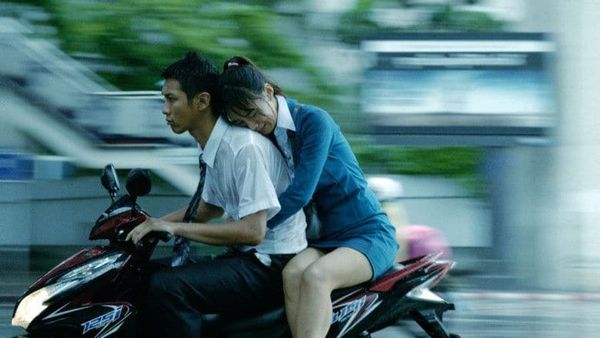Eye For Film >> Movies >> The Road To Mandalay (2016) Film Review
The Road To Mandalay
Reviewed by: Jennie Kermode

Ever since Burma began to open up to the world, it has been an object of fascination to creative outsiders, but there are still very few of its own people telling their own stories. Midi Z is one of them. In this, his fourth feature, the young director, who spent much of his ow life elsewhere, tells the story of migrants from his home town of Lashio in Shan province. Trusting to people smugglers to carry them to a new life in Thailand, Lianqing (Ke-Xi Wu) and Guo (Kai Ko) are strangers thrown together by fate. To Guo, it's an opportunity for romance, but Lianqing has other ideas.
Despite the initial focus on Burma, this is a film that will strike a chord with migrants all over the world. Much of what Z sets out to show is that his homeland is the ordinariness of his homeland, at least as far as peasants are concerned. Guo wants to save up money in Thailand, get home as soon as he can and start a business. Lianqing sends money home to her mother each week - there is almost always a way - but for her, Thailand is only the beginning. She's set her sights on more prosperous parts of the Far East. She's willing to work hard in restaurants and factories doing whatever she can get, but her target is a desk job in a big company where she can wear a suit and earn a good wage. The starting point is Thai citizenship. For this she will strive against all odds, even as Guo, inserting himself into her life at every opportunity, comes to believe that it's pointless.

This is a film full of sharp observations. Z wisely sidesteps the issue of sexual exploitation - except in one brilliantly surreal scene on which all the rest pivots - to focus instead on the less talked-about ways that people without papers are routinely abused. The slum housing, the dangerous machinery, the long hours, the fees for almost everything. Yet many are grateful for what they get, and there is friendship and a sense of community, despite the threats and bribery with which they are kept in line. Importantly, the film is never patronising. The forms that exploitation takes never imply that these people are stupid, merely that they have limited options.
Underscoring the rest is the bittersweet connection between the two lead characters. Z captures it in the first exchange of glances. Gao's eagerness to make a pseudo-sacrifice in order to impress. Lianqing's wariness and immediate sense that she should distance herself from him, something that he chips away at, perhaps without understanding what he is doing, exploiting her sense of honour and image of herself as a friendly person. Sometime real friendship seems possible, but he can he accept it on her terms? It's a situation with which most women will be familiar. Lianqing is seeking not just to flee Burma but to free herself from the expectations appended to her sex.
Z effectively shows us the daily grind and takes us through one disappointment after another without ever ceasing to be engaging. He maintains the energy of the story throughout, and it isn't always easy to see where it's going. This is a strong, atmospheric piece of work that has something to say about the human spirit. It might not be something we want to hear.
Reviewed on: 04 Feb 2017
















